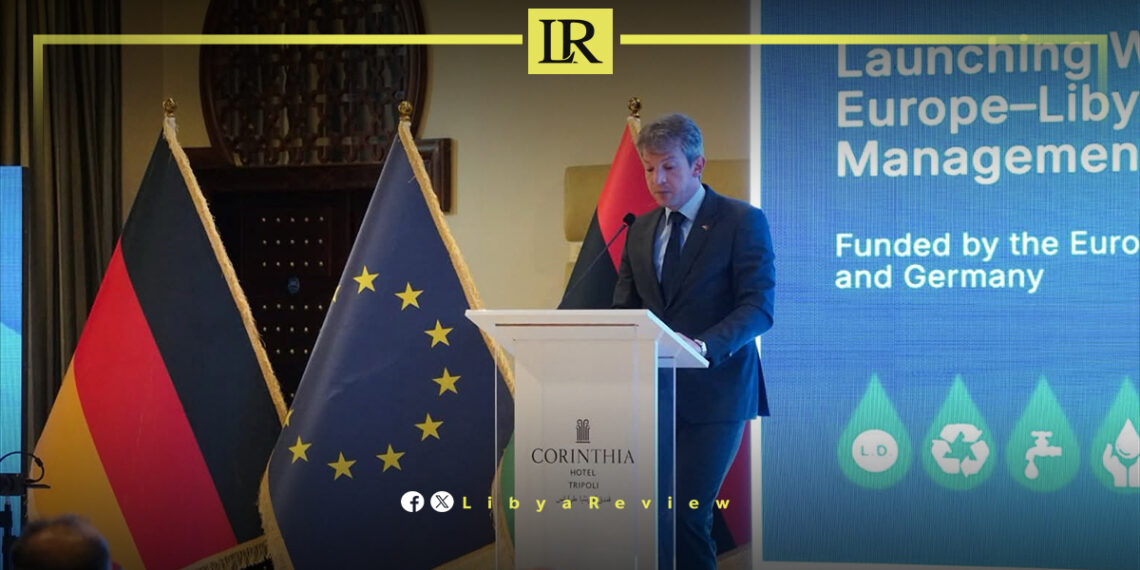Germany has reaffirmed its commitment to supporting Libya in building a sustainable and climate-resilient future, through the launch of the EU–Libya Water Resources Management Facility, a key step toward strengthening environmental and water governance across the country.
The official launch event brought together German Chargé d’Affaires Daniel Schimsky, Libyan partners, and European representatives. The initiative is jointly led by Libya’s Ministry of Water Resources and Ministry of Local Government under the Government of National Unity (GNU), with co-funding from Germany and the European Union.
Implemented by the German Agency for International Cooperation (GIZ) and the Italian Agency for Development Cooperation (AICS), the project aims to enhance water management, improve supply systems, and promote sustainable governance practices under the Team Europe framework.
In his remarks, Schimsky highlighted that water is not merely a resource but a foundation for peace, development, and opportunity, underscoring Germany’s readiness to continue partnering with Libya on projects that strengthen climate adaptation and long-term resilience.
He added that Germany stands by Libya in its efforts to ensure a sustainable and prosperous future for all Libyans.
Libya has been in chaos since a NATO-backed uprising toppled longtime leader Muammar Gaddafi in 2011. The county has for years been split between rival administrations.
Libya’s economy, heavily reliant on oil, has suffered due to the ongoing conflict. The instability has led to fluctuations in oil production and prices, impacting the global oil market and Libya’s economy.
The conflict has led to a significant humanitarian crisis in Libya, with thousands of people killed, and many more displaced. Migrants and refugees using Libya as a transit point to Europe have also faced dire conditions.
The planned elections for December 2021 were delayed due to disagreements over election laws and the eligibility of certain candidates. This delay has raised concerns about the feasibility of a peaceful political transition.
Despite the ceasefire, security remains a significant concern with sporadic fighting and the presence of mercenaries and foreign fighters. The unification of the military and the removal of foreign forces are crucial challenges.


